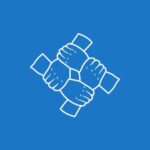
3K
Do you find you never know what to say in an interview when they ask you what your strengths are? Well, if you’re accepted into one of our international internship programs, AIFS Abroad can help you with that. All AIFS Abroad interns take the Clifton StrengthsFinder assessment, a personal development tool based on decades of research into human strengths. With the help of our team, you can leverage your Top 5 Strengths during your internship abroad — and beyond!
There are four distinct domains, or groups, of these strengths: 1) Relationship Building, 2) Influencing, 3) Executing, and 4) Strategic Thinking. This blog posts focuses on the Relationship Building domain, affectionately known as the “glue stick” domain, as the strengths that fall within it provide the essential glue of group cohesion.
If the Clifton StrengthsFinder Assessment determined you have Relationship Building strengths, here are some examples of how you can leverage them during your international internship:
But first, what is the Relationship Building domain?
People who hold relationship building strengths in their Top 5 excel at forming connections with other people. They are adept at showing care and concern to others, often by openly demonstrating their emotions. If you have this strength, human relationships matter above all else. You are careful to be authentic and genuine in your interactions with those around you and encourage others to do the same. When someone is feeling down or unheard, you listen to them and ensure they don’t feel left out. You’re a Care Bear! The strengths in the Relationship Building domain are Adaptivity, Connectedness, Developer, Empathy, Harmony, Includer, Individualization, Positivity and Realtor.
The Positivity Strength

Everyone has one of these people in their office. These are the people at your organization who are always smiling, complimenting your outfit, and asking about your weekend plans. They are skilled at building relationships by attracting others to them and their teams with their upbeat, enthusiastic, and joyful demeanor. Other teams might even be vying to have them on their own team.
Here’s a hypothetical of an AIFS Abroad intern using the Positivity Strength. Let’s say you’re working at a Public Relations firm in London. Your task is to contact journalists and pitch stories about the release of a new product. Most of the journalists turn you down immediately, sometimes hanging up on you, or worse. But that’s okay — you use your Positivity to not get dismayed and stay focused. This in turn makes a positive impression on your fellow interns and supervisors, and helps you forge lasting professional relationships across the pond.
The Individualization Strength

People who have the Individualization strength can see people. By this we mean, seeing past stereotypes or pre-conceived notions, and hone in on what makes an individual really tick. What are a person’s motivations? Interests? Values? Those with the Individualization strength tend to make good managers, as they know how to put the right people in the right places, ensuring their talents will be used to the fullest extent.
Let’s say you’re on an AIFS Abroad internship program at a London-based social services organization. During your intake sessions, you use your individualization strength by taking the time to ask tailored follow-up questions to really glean your clients’ stories. By doing so, you make your clients feel heard and accepted, leading to a greater rapport with them.
The Developer Strength

People with the Developer strength see others as a blank slate full of limitless possibilities. They see nothing but potential in others and enjoy helping people grow and reach a level of self-actualization. This interest in people’s progress and growth makes them incredible teachers and mentors. Developers look for opportunities to challenge others, recognize their abilities, and ask what they can provide to help them succeed.
For example, say you’re an AIFS Abroad intern in Florence tasked with organizing a travel company’s blog… even though none of the people writing the blog are formal writers. You could use your Developer strength to point out areas for improvement and offer resources or advice to bring out everyone’s best!
The Adaptability Strength

When it comes to work, people with this strength tend to go with the flow. They live in the “now,” taking things as they come, and don’t struggle with pivoting in tricky situations. One might think these people don’t have plans — they do. But it’s when plans go awry that they absolutely thrive.
Let’s say you’re a design intern at a Berlin advertising agency with a client who found out they don’t have enough money to pay for the custom illustrated assets they asked your team to make. A good use of Adaptability would be to suggest to your supervisor that the client provide already existing assets that you can edit, and then provide custom illustrations on top of that, charging the client a little bit less. In this case, you made the client happy, showed your boss you’re adaptable, and secured some of the money you were promised by the client!
The Connectedness Strength

The Connectedness Strength is predicated on the belief that all individuals are linked. People with this strength believe that to harm another human being would mean harming themselves. They believe in the unity of humankind and are a bridge between people of different cultures and circumstances. They are considerate, caring, and accepting.
For example, as an intern abroad, maybe you see a full-time employee at the Lisbon-based engineering company you intern for make a mistake in their calculations. You could easily point it out to management, embarrassing the employee and giving you the opportunity to appear more capable to your employer. But instead, you use your Connectedness strength to understand that it’s actually in your best interest to point out the mistake to your co-worker in a private message. This keeps your co-worker’s reputation intact, while building a solidarity with them that allows you both to serve the team better.
The Empathy Strength

This strength predicates being able to sense other people’s feelings by imagining yourself in their lives or situations. These are people who instantly feel the emotions of other people as they happen, as though those emotions are their own. It’s not a matter of agreement or disagreement, nor is it about pity. It’s about understanding. It’s about assessing the room and finding the right words and conveying them in the right tone.
An example of using this strength could be that you’re interning at a local business in Rome and your colleague owes you half of an assignment that you’re working on together, due by the end of the day. But, they just received tragic family news. As someone with the Empathy strength, you put yourself in their shoes and determine that, to this person, their grief trumps the assignment. You extend your condolences to your colleague and offer to pick up where they left off. In turn, your colleague feels supported in their time of need.
The Harmony Strength

Some may say the avoidance of conflict is a weakness, but CliftonStrengths sees seeking areas of agreement to be a valued strength. These are people who look for consensus. No matter how much friction over an issue there is, these people are able to create space for both sides, understand their point of view, and find common ground.
Let’s say your internship is with a fashion company in Paris. Your boss has an idea for what a product should be called, but the Creative Director has a different vision. Using your Harmony relationship building strength, you ask other coworkers what they think, starting a forum rather than an argument. Once everyone has said their peace, the problem is solved, and everyone is happy.
The Includer Strength

Of all the strengths, Clifton StrengthsFinder says people who have this type use “stretch the circle wider” as the philosophy that orients their lives and helps them with relationship building in the workplace. These people have a unique awareness of those who feel left out and make an effort to include them. To the Includer, the more the merrier.
Imagine you’re working at a non-profit in Costa Rica and your company wants to promote their services at a local fùtbol match. You notice that your teammates are not including another member of your team because that person isn’t a big fan of fùtbol. However, you remember that this person has a background in advertising at live events, so you use your Includer strength and ask for their take, explaining their experience to the rest of the team. Now you have more minds and a different perspective on the event.
The Realtor Strength

This is the type of person who greatly values established relationships — a buddy. They are comfortable with intimacy and are dedicated to deepening relationships, despite knowing that this amount of closeness implies a certain amount of risk of being taken advantage of. They are more than willing to accept that risk if it means they can have a genuine friendship in the end.
An example of this type of relationship building strength being put to use would be if, say, you’re interning at a law firm, and you need to stay late to look over documents with another intern. As the hours grow later, you start to reveal a little bit about your blind spots and weaknesses, knowing that this person could easily use this information against you. The thing is, you know that revealing this will only foster a successful working relationship, and ultimately improve not only your productivity, but also your work/life balance.
Use Your Domain to Succeed!
Looking at the four domains of strengths can help us see ourselves from another angle and make it easier to build well-rounded teams. Understanding your own dominant domain will help you seek out tasks that you will enjoy and excel at. When you know what you offer (and what you struggle to offer) you can find complimentary partners.
Curious what your strengths are? Apply for an AIFS Abroad internship program, where you’ll work with an advisor to find out how best you can succeed.
Here at AIFS Abroad, we offer incredible international internship programs. Once you’re accepted, you will be asked to take the Clifton StrengthsFinder assessment so our advisors can see what value you can bring to an international program and prepare you for the interview. Every AIFS Abroad intern is guaranteed an internship placement.